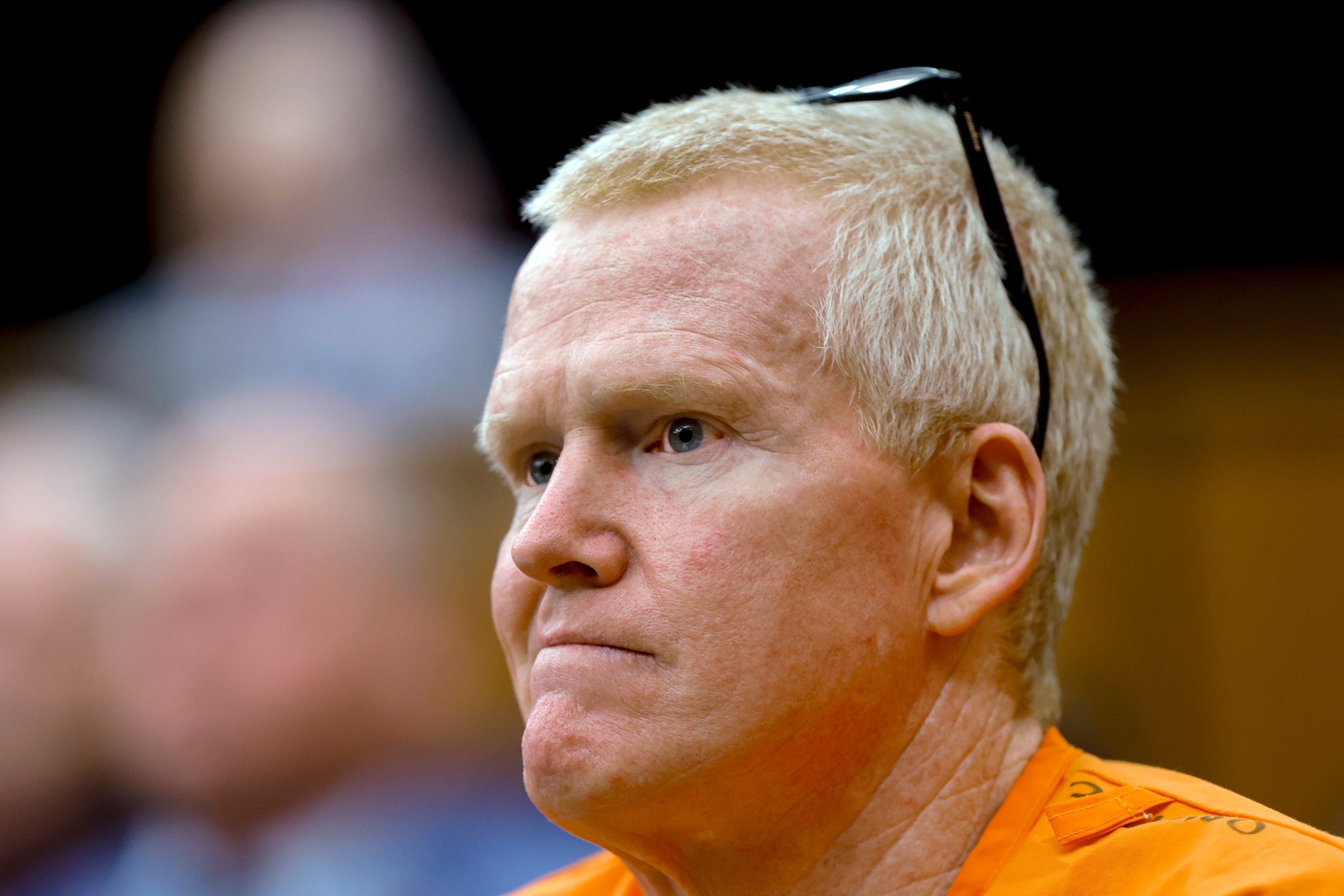FBI says Alex Murdaugh lied about where money stolen from clients went and who helped him steal
Federal prosecutors say convicted killer Alex Murdaugh didn’t tell the truth when FBI agents repeatedly asked him where more than $6 million he stole ended up

Your support helps us to tell the story
From reproductive rights to climate change to Big Tech, The Independent is on the ground when the story is developing. Whether it's investigating the financials of Elon Musk's pro-Trump PAC or producing our latest documentary, 'The A Word', which shines a light on the American women fighting for reproductive rights, we know how important it is to parse out the facts from the messaging.
At such a critical moment in US history, we need reporters on the ground. Your donation allows us to keep sending journalists to speak to both sides of the story.
The Independent is trusted by Americans across the entire political spectrum. And unlike many other quality news outlets, we choose not to lock Americans out of our reporting and analysis with paywalls. We believe quality journalism should be available to everyone, paid for by those who can afford it.
Your support makes all the difference.Convicted killer Alex Murdaugh didn't tell the truth when FBI agents repeatedly asked him where more than $6 million he stole ended up and whether another attorney not yet identified helped him steal from clients and his law firm, federal prosecutors said in court documents Tuesday.
The prosecutors want a judge to revoke their end of a plea deal with Murdaugh on theft and other charges and order him to the maximum of well over 100 years in prison when he is sentenced in Charleston, South Carolina, on Monday.
Murdaugh, 55, is already serving life without parole in state prison after a jury found him guilty of murder in the shootings of his wife and younger son. He pleaded guilty to stealing money from clients and his law firm in state court and was sentenced to 27 years, which South Carolina prosecutors said is an insurance policy to keep him behind bars in case his murder conviction was ever overturned.
The federal case was supposed to be even more insurance, with whatever sentence Murdaugh received running at the same time as his state sentences. But that deal is in doubt after the FBI said the disbarred attorney failed a polygraph.
The test came in October, after three previous FBI interviews of Murdaugh led investigators to think he wasn't telling the full truth about where at least $6 million he stole ended up and the role of an attorney who has not been publicly identified in his crimes, federal prosecutors said.
In court papers, prosecutors asked to keep the report on the polygraph test and summaries of Murdaugh's four FBI interviews from the public, saying a grand jury is continuing to investigate and the information could be used to tamper with evidence or influence witnesses.
Murdaugh's attorneys didn't respond to messages Tuesday. They have not filed a response in court, although a footnote in the prosecution's filing said they were against keeping the polygraph report secret.
Federal prosecutors said Murdaugh did appear to tell the truth about the roles banker Russell Laffitte and attorney and old college friend Corey Fleming played in helping him steal.
Laffitte was convicted and sentenced to seven years in prison, while Fleming is serving nearly four years behind bars after pleading guilty.
Each of the 22 counts Murdaugh pleaded guilty to in federal court carries a maximum of 20 years in prison. Some carry a 30-year maximum. Prosecutors said they will ask for the stiffest sentence possible since the plea agreement was breached and require Murdaugh serve his federal sentence at the end of any state sentences.
They said there is a long history of federal law that won't allow Murdaugh to revoke his guilty plea since he broke the terms of the deal.
State prosecutors estimated Murdaugh stole more than $12 million from clients by diverting settlement money into his own accounts or stealing from his family law firm. Federal investigators estimate at least $6 million of that has not been accounted for, although Murdaugh has said he spent extravagantly on illegal drugs after becoming hooked on opioids.
Investigators said that as Murdaugh's schemes were about to be exposed in June 2021, he decided to kill his wife and son. Paul Murdaugh was shot several times with a shotgun and Maggie Murdaugh was shot several times with a rifle outside the family's home in Colleton County.
Murdaugh has adamantly denied killing them, even testifying in his own defense against his lawyers' advice.
As he pleaded guilty in federal court on Sept. 21, it was the first time he admitted to a crime and promised to stick to the requirements of his deal, including being “fully truthful and forthright with federal, state and local law enforcement agencies by providing full, complete and truthful information about all criminal activities about which he/she has knowledge.”
“I want to take responsibility. I want my son to see me take responsibility. It’s my hope that by taking responsibility that the people I’ve hurt can begin to heal,” said Murdaugh, standing in his orange South Carolina prison jumpsuit.